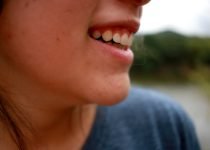My Battle With Acne: Finding The Cure
For many years, I struggled with severe acne that left my skin covered in painful, embarrassing breakouts. I tried countless treatments – over-the-counter creams, prescription antibiotics, and even harsh chemical peels. But nothing seemed to work.
**The Underlying Causes of Acne**
Acne is a common skin condition that affects people of all ages. It occurs when hair follicles become clogged with oil and dead skin cells, creating a breeding ground for bacteria. The bacteria cause inflammation, leading to the formation of pimples, blackheads, and cysts.
There are several factors that can contribute to acne, including:
* **Hormonal changes:** Androgens, hormones that increase during puberty and can stimulate oil production.
* **Genetics:** Acne tends to run in families, suggesting a genetic susceptibility.
* **Diet:** Foods high in dairy, sugar, and processed carbohydrates may trigger breakouts in some people.
* **Stress:** Stress can increase the production of hormones that exacerbate acne.
**Understanding the Different Types of Acne**
There are several different types of acne, each with its own characteristics:
* **Non-inflammatory acne:** This type includes blackheads and whiteheads, which are small, non-inflamed blemishes.
* **Inflammatory acne:** This type includes pimples, pustules, and cysts, which are red, inflamed, and often painful.
* **Cystic acne:** This is the most severe type of acne, characterized by large, deep cysts that can cause scarring.
**Finding the Right Treatment Plan**
Treating acne effectively requires a personalized approach that takes into account the individual's skin type, the severity of their acne, and their lifestyle. Some common treatment options include:
* **Topical medications:** These are applied directly to the skin and include retinoids, antibiotics, and benzoyl peroxide.
* **Oral medications:** These are taken by mouth and include antibiotics, isotretinoin, and hormonal therapies.
* **Chemical peels:** These treatments use chemical solutions to exfoliate the skin, reducing oil production and inflammation.
* **Light therapy:** This treatment uses blue or red light to kill bacteria and reduce inflammation.
**The Importance of Lifestyle Modifications**
In addition to medical treatments, lifestyle modifications can also play a significant role in managing acne:
* **Wash your face twice daily:** Use a gentle cleanser and lukewarm water to remove dirt and excess oil.
* **Moisturize regularly:** Even oily skin needs moisture to stay healthy. Choose a non-comedogenic moisturizer that won't clog pores.
* **Avoid touching your face:** Touching your face can spread bacteria and increase inflammation.
* **Manage stress:** Chronic stress can trigger breakouts. Find healthy ways to manage stress, such as exercise, yoga, or meditation.
* **Eat a healthy diet:** Limit foods that may trigger breakouts, such as dairy, sugar, and processed carbohydrates.
**Finding Hope and Support**
Acne can be a frustrating and embarrassing condition, but it's important to remember that it's treatable. With the right treatment plan and lifestyle modifications, most people with acne can achieve clear, healthy skin. If you're struggling with acne, don't hesitate to consult with a dermatologist for personalized advice and support. Remember, you're not alone in this journey.


